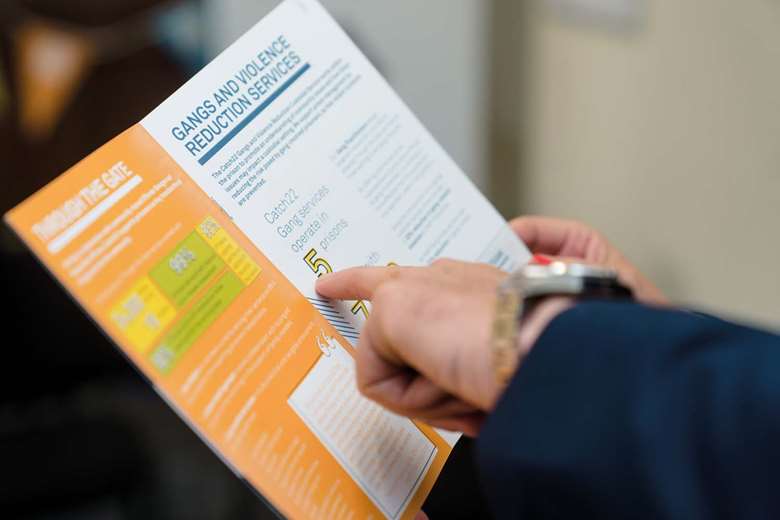Catch22 helps young people get on right road
Andrew Gray, gangs and violence reduction resettlement co-ordinator, Catch22
Wednesday, August 30, 2023
Not-for-profit organisation delivers discussion-based workshops as part of a programme to break gang and violence ideation among young adults in custody.

ACTION
In 2021, approximately 12,700 children were referred to children's services with “gang involvement” identified as a concern within their intake assessments. Such gang involvement is strongly associated with violence and knife crime – there has been a six per cent rise in knife crime in England and Wales in the last 12 months alone.
Addressing serious youth violence requires a multi-faceted approach, including social, economic, educational, and law enforcement measures.
At Catch22 we are taking a proactive approach to curbing the rise in gang-associated and group violence. We are doing this through our ROAD (Rehabilitation Offering Another Direction) programme, which seeks to support young adults who are involved in or with gangs and violent offenders.
ROAD is a group intervention programme delivered in prisons, such as HMP Brinsford and HMP Thameside, and in the community, such as the West Midlands (where there has been an increasing trend in gang involvement) and in London as part of our commissioned rehabilitative services. Expert gang practitioners focus on reducing pro-criminal attitudes and promote alternatives to violence. Many of the cohort who participate in the ROAD programme have experienced trauma, adverse childhood experiences and grown up with gang involvement and violence in their daily lives.
ROAD aims to develop consequential thinking skills, by encouraging participants to consider and evaluate their past choices and address the consequences of their behaviour. It also seeks to promote alternative pro-social life options and opportunities, thereby striving to reduce re-offending rates, as well as significantly improve custodial behaviour.
ROAD is delivered over five days each month to 10 to 12 participants per programme. Activities are discussion based and also include team-building games, use of role play and media material, and are supported throughout with a written element, for example by completing workbooks.
Exercises have been designed to challenge negative attitudes and improve participants' communication skills in conflict situations.
The programme is interactive, relevant and offers an alternative form of rehabilitation shown to be more effective than the suppression-only approaches many of this cohort would have experienced in custody in the past, whereby they have limited access to interventions and education due to their gang involvement.
Referrals to attend the programme come in the form of self-referrals, inclusion in sentence planning objectives, and/or recommendations from key stakeholders and statutory services like probation and reducing reoffending teams.
IMPACT
Participants' behaviour is monitored pre and post attendance. ROAD uses a digital tool called VIPER scoring, which predicts the likelihood of participants' involvement in violent incidents. The level of attitudinal change is also reviewed through the completion of anonymised distance-travelled questionnaires; a survey which offers an honest self-analysis of participants' pro-criminal attitudes both before and after the programme. In custody, change can also be measured through the participants' engagement with their sentence plan objectives.
Participants receive a post-programme report that details their engagement and progression with key learning and reflective points included to inform and identify future intervention and support required.
In 2022, the programme completion rate was 83 per cent with 80 per cent of participants demonstrating a marked level of improvement in their behaviour or maintained positive behaviour following completion. In addition, 37 per cent of participants demonstrated a reduction in pro-criminal attitudes – such as believing it is possible to leave a gang once involved, or recognising the risks associated with weapon carrying, illustrating a considerable shift in pro-social attitudes. In 2019, our impact evaluation demonstrated an 18 per cent improvement in pro-criminal attitudes towards knife possession.
In 2022, evaluation by the West Midlands Violence Reduction Partnership stated: “The Catch22 facilitators were great in navigating meaningful conversations, challenging the men, creating opportunities for reflections and encouraging the men to think in a prosocial way.”




